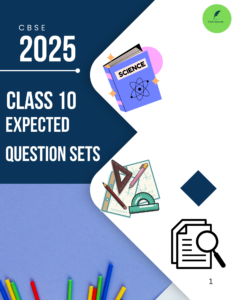The holiday season is here, and along with it comes the dreaded holiday homework. While it’s natural to want to enjoy the break, holiday homework serves an important purpose in reinforcing what you’ve learned in school. Don’t worry, though! With the right approach, you can make this time both productive and enjoyable.
Class 1-3: Building Strong Foundations
1. Reading Adventures
Encourage your little one to explore different genres of books – from fairy tales to informational books about animals or space. Create a reading corner with cozy cushions and their favorite books. Read together and ask questions to spark their curiosity.
2. Creative Arts and Crafts
Organize a mini art exhibition at home! Provide them with a variety of materials like colored paper, glue, scissors, and markers. Suggest projects like making a family tree, creating a paper plate mask, or designing a greeting card for a friend.
3. Math Games
Turn everyday activities into math adventures. Let them help with setting the table (counting plates and utensils), or play games like “Grocery Store” where they have to add and subtract items from a shopping list.
Class 4-6: Strengthening Core Concepts
1. Subject-Specific Worksheets
Consider creating a workbook tailored to your child’s current curriculum. Include exercises on topics they’ve covered recently. Encourage them to solve them independently but be available for guidance and clarification.
2. Exploring Hobbies
Dive deeper into their chosen hobby. If it’s painting, introduce techniques like shading or blending. If it’s playing a musical instrument, focus on a new song or technique. Document their progress with photos or recordings.
3. Fun with Science Experiments
Explore hands-on experiments related to what they’ve learned in school. Create a mini lab at home and conduct simple experiments like making a lemon battery or observing the water cycle.
Class 7-8: Transition to In-Depth Learning
1. Research Projects
Select a topic within their curriculum or something they’re passionate about. Encourage them to gather information from books, online sources, and interviews. Help them create a presentation or report to share what they’ve learned.
2. Literary Exploration
Introduce them to classic literature and discuss its relevance in today’s world. Encourage them to write essays analyzing characters, themes, and the author’s style. This can develop critical thinking and analytical skills.
3. Real-Life Math Applications
Engage them in practical activities that involve budgeting, measuring, and calculating. Have them plan a mock shopping trip with a set budget, or involve them in cooking where they’ll need to adjust recipe measurements.
Class 9-10: Preparing for the Future
1. Practice for Board Exams
Utilize a study schedule and practice tests for each subject. Allocate specific time slots for revision, and simulate exam conditions to build confidence and familiarity with the format.
2. Writing Essays
Provide them with a range of essay topics, including current affairs, literature, and scientific advancements. Encourage them to structure their essays with clear introductions, body paragraphs, and conclusions.
3. Exploring Career Interests
Help them connect their interests to potential careers. Arrange virtual meetings or interviews with professionals in fields they’re curious about. Visit career fairs or explore online resources together.
General Tips for All Classes
1. Time Management
Assist them in creating a visual timetable, marking study periods and breaks. Use a timer to help them stick to the schedule, and gradually increase study durations as they get accustomed.
2. Parental Guidance
Stay engaged and show genuine interest in their progress. Offer assistance when they encounter difficulties, and celebrate their achievements, no matter how small.
3. Celebrate Achievements
Consider a small reward system for completing tasks. A special outing or a favorite treat can serve as motivation. Additionally, create a display or portfolio of their work to showcase their efforts.
Remember, the goal is to make learning enjoyable and to instill a sense of curiosity and independence in your child. By tailoring activities to their interests and abilities, you’ll set the stage for a successful and productive holiday homework period.



